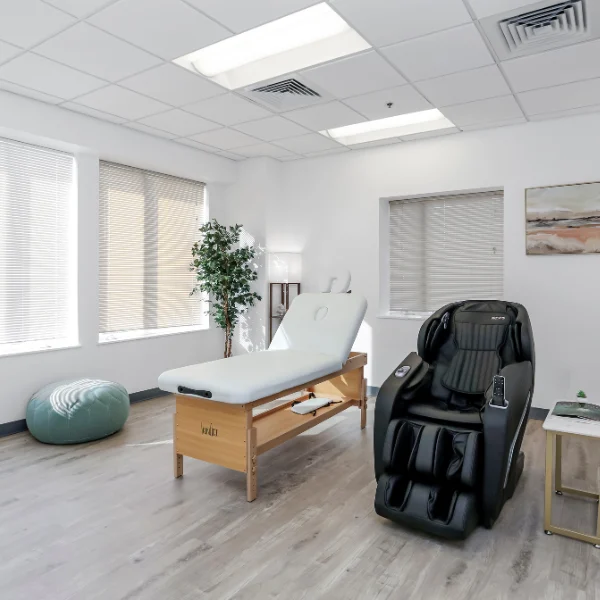Dealing with PTSD and drug or alcohol addiction can be tough. However, knowing how trauma and substance abuse are linked is the first step to recovery.
Traumatic events can render life insurmountable. The effect it has on your body and mind can be gigantic. Trauma for some people can be so unbearable that they use alcohol and drugs as their coping mechanism. Such behavior only worsens the already appalling situation.
When addiction is involved—whether to opioids, marijuana, prescription drugs, or alcohol—the challenge becomes more complex. This quagmire is more common than you might imagine.
PTSD is a pretty common thing. Each year, it affects around 3.5% of adults in the US.
When we look at teens between 13 and 18, about 8% will experience it at some point. It’s thought that about 1 in 11 people will get a PTSD diagnosis at some time in their life. Notably, women are about twice as likely as men to have PTSD.
Another research has shown an even more concerning trend. A large national study found that 44.6% of people with PTSD also had an alcohol use disorder (AUD) or a substance use disorder (SUD).
PTSD is well known among soldiers, partly due to research from the U.S. Department of Veterans Affairs. However, trauma affects everyone, regardless of their background. Anyone can get PTSD if they have gone through or seen something very upsetting, like an attack or a natural disaster.
PTSD is an illness of the mind that could develop after a person witnessed or experienced a traumatic event. Such events can include combat, disasters, accidents, attacks, or any incident that leaves a person emotionally hurt.
It is normal to feel shaken after a traumatic event. However, PTSD is different. It happens when those feelings do not go away. Instead, they interfere with everyday life.
For some people, post-traumatic stress disorder is a constant struggle. It includes intrusive memories and emotional numbness. Emotional numbness means they cannot connect with their feelings. They also feel a state of heightened alertness or hyperarousal.
These PTSD symptoms can make you feel like you’re reliving the original trauma, even years afterward. In some cases, the emotional pain becomes too much to handle. This leads people to use substances to cope.
About 60–80 percent of people will encounter at least one traumatic experience in their lives. Not every one of them will develop PTSD. There is no clear explanation for why humans respond differently to the effects of trauma. However, studies have linked the development of PTSD symptoms to abnormalities in some types of hormones and transmitters.
Neurotransmitter and hormone changes
Researchers have found that people with PTSD often have normal or low levels of cortisol, the stress hormone. However, their levels of corticotropin-releasing factor (CRF) are higher than normal. CRF, in turn, sets off the release of norepinephrine.
Norepinephrine (noradrenaline) is a neurotransmitter and hormone key in the body’s “fight-or-flight” response. It is mainly released in the adrenal glands and some types of nerve cells in the brain. In PTSD, this “fight or flight” response gets stuck in overdrive, leading to:
Your body is trying to keep you safe by doing this, but it can wear you out.
PTSD leads to changes in brain chemistry and structure. The hippocampus shrinks, affecting memory and emotional regulation. The amygdala becomes overactive, increasing fear and anxiety. The medial prefrontal cortex weakens, making regulating emotions and stress responses harder.
What are the risk factors for PTSD?
While there’s no way to know for sure who gets PTSD after something terrible happens, some things can make it more likely, including:


Dealing with PTSD can feel like you’re carrying a burden that’s hard for others to grasp fully. Everyone goes through their own set of symptoms, but shared ones include:
One of the hardest parts of dealing with post-traumatic stress disorder is feeling like the trauma is happening again. Thoughts can appear suddenly in your mind. You may also feel physical sensations that bring you back to that moment. Your heart might start to pound, your hands may shake, and you could feel anxious.
Nightmares can also be a problem. You relive the trauma while you sleep and then wake up just exhausted and on edge. Even everyday things, like a smell, a song, or a particular place, can trigger those memories, too.
If you have PTSD, you might try to stay away from anything that reminds you of what happened. This could mean avoiding intrusive memories, certain people, places, talks, or things you do. You might also try to block out any thoughts or feelings about the event.
PTSD can change your viewpoint and make it difficult to find the positive in anything. You might get stuck in unhelpful thoughts. You may blame yourself for what happened. You might also think the world is unsafe and unreliable.
PTSD can also change how you relate to people and the world. You may feel like withdrawing from everything.
People and activities that once made you happy may no longer seem fun. Moreover, you become unnecessarily moody, constantly irritable, and quarrelsome over petty issues that never bothered you as much before. You might lash out at people you care about or be all worked up for no apparent reason.
Hyperarousal is when you’re extremely alert and reactive. If you have it, your body’s stuck in fight-or-flight, so you feel on edge, jumpy, and can’t relax. Here, you constantly look around for danger that probably isn’t even there.
Loud noises or quick movements make you freak out way more than they should. Focusing on a task or conversation when your mind is racing can almost seem impossible.
PTSD is usually thought of as flashbacks, being irritable all the time, or debilitating emotional numbness. There is another side to chronic trauma that often gets less attention: the dissociative subtype.
This type of PTSD will pull in two big terrains: derealization and depersonalization. Derealization makes the world feel fake, far away, or warped. Depersonalization, on the other hand, is when you feel detached from yourself, as if you’re watching your own body or mind from the outside.
These signs can be exhausting, but knowing them can help you feel better and regain control.
PTSD can affect your mental strength. It can cause anxiety, which is excessive worry. It can also lead to depression, where you feel down for a long time.
Additionally, it can cause excessive hyperarousal, which may result in panic attacks. PTSD symptoms can include flashbacks and bad dreams. These can make you feel jumpy, irritable, or very tired.
You may get super alert, too, always on guard even when there’s nothing tangible to worry about. This can disrupt your sleep. It makes it hard to focus. You may feel distant from people you care about and activities you usually enjoy.
The pain can be overwhelming. People often try to cope in unhealthy ways. They may drink too much or use drugs. This includes self-medicating with opioids, marijuana, or nicotine to feel better.
Some may even isolate themselves from others. Trauma-related symptoms can cause feelings of being disconnected from oneself or reality. In serious cases, they may lead to thoughts of suicide.
Addiction is a long-term problem where people feel driven to do things that give them pleasure, even if those things cause harm. It could be alcohol, drugs like marijuana, nicotine, opioids, or behaviors like gambling. Addiction messes with the brain’s reward system, so it’s super difficult to stop.
Addiction often comes from several factors. These include low-stress tolerance, family history of addiction, and your environment. Mental health can also be a big deal because people might use drugs or alcohol to feel better and deal with their feelings. Here are some common problems linked to addiction:
People with PTSD might start using substances to try and quiet negative feelings or memories. But that can turn into a serious problem over time.
Our caring professionals are standing by around the clock, ready to address all your questions.
The link between PTSD and substance use is well-documented. People with PTSD are two to four times more likely to struggle with addiction than those without the disorder. But why is this connection so strong?
For most, substance use starts as a way to cope with PTSD symptoms. Alcohol or drugs might temporarily relieve anxiety, numb emotional flashbacks, or help with sleep disturbance. However, this type of self-medication often causes problems. It can lead to withdrawal symptoms, more psychological stress, and worse PTSD symptoms.
When PTSD and addiction occur together, they can create a vicious cycle that makes healing even more challenging. Many people use substances like marijuana, nicotine, alcohol, or opioids to escape painful memories. However, these substances often make PTSD symptoms worse over time. Using drugs or alcohol to deal with problems can:
If you’re struggling with both PTSD and addiction, it may feel like you’re trapped in an endless cycle. But with the proper professional support, you can break free, regain control, and start building a healthier future.

We know that cost is a major factor for most people when seeking treatment for drug & alcohol abuse in Virginia. Novara Recovery Center works with most major insurance plans to help cover up to 100% of the costs associated with treatment at our program. To find out your personal options for treatment, get a free verification of insurance benefits right now by clicking the button below.









The good news is that treatment for co-occurring disorders has come a long way. Integrated approaches that address both PTSD and addiction simultaneously have been shown to be the most effective.
Instead of treating PTSD and substance use as two different things, integrated treatment deals with both at the same time. This method can help you build better coping skills and lower the chance of relapse or going through the trauma again.
Several therapeutic interventions have proven effective for co-occurring disorders. Common evidence-based treatment options for dual diagnoses include:
Think of a support group as a haven where you can open up without fear of judgment. A support group is often made up of people who understand what you are going through. When you share your experiences, you know they truly understand.
Telling your story can make you feel less isolated and decrease shame. It also reassures you that your emotions are valid and that you’re not alone in what you’re going through. Many people with PTSD find it hard to trust others. These groups can help you connect and build positive relationships.
These groups aren’t just about feelings, though. You also get solid advice on handling triggers, destructive thoughts, and anxiety. You might learn breathing tricks or hear how others have survived such tough times.
You get valuable tips that can make your day-to-day life easier. And they remind you that you can get better— giving you hope and the will to keep trying.
Helping someone you care about recover from PTSD and addiction is difficult, but you can make a difference. Try to get them into a treatment program that deals with both issues simultaneously. Suitable options include things like therapy (cognitive behavioral therapy, exposure therapy EMDR), psychiatric medication, and support groups.
Avoid doing things that enable their addiction. Set some healthy limits, and remind them that getting better takes time.
Also, please keep in mind to take care of yourself. Make sure to dedicate some time for self-care, and if things seem to be too much to handle, consider seeking therapy. Joining support groups like the NAMI Family Support Group can help you get through each day without feeling too tired.
These groups provide support for adults who have a family member with mental health issues. They are run by people who understand what you are going through. They provide a safe space to share your experiences. You can gain insights and learn from others who have faced similar situations, both good and bad.
It’s natural to want to lend a hand but keep in mind that their journey to recovery ultimately depends on them.
At Novara, we want to make getting better as easy as we can. We give you personal care that puts you first in a safe, modern, and friendly place customized just for what you need. From detox placement to living at our center to programs where you can still live at home, we’re here to help you out all the way.
We accept various payment options and work with most major insurance providers. Plus, we offer free insurance verification to help you get started quickly. Your healing journey can begin today—reach out and take the first step toward recovery.
Come see us at 2815 Old Lee Hwy Floor 2, Fairfax, VA 22031. You can also call us at (703) 705-7870 or email info@novararecoverycenter.com to learn more.
Written By:

Mental Health Writer
Geoffrey Andaria is a seasoned writer and editor specializing in mental health content. With a B.A. in English and Journalism, he possesses a solid foundation in crafting freelance articles and conducting research. Geoffrey has also completed courses in social work. He dedicates himself to providing valuable and informative content for individuals impacted by mental health challenges and addiction.
Medically Reviewed By:

Expert Contributor
Dr. Williams is currently a board member for two non-profit service organizations. He holds a Master’s degree in Human Services from Lincoln University, located in Philadelphia, Pennsylvania.
He possesses a Ph.D. in Clinical Psychology from Union Institute and University, located in Cincinnati, Ohio. He holds a license to offer addiction counseling in both New Jersey and Connecticut. Additionally, he has submitted an application to become a licensed psychologist in New Jersey.






2815 Old Lee Hwy Floor 2, Fairfax, VA 22031